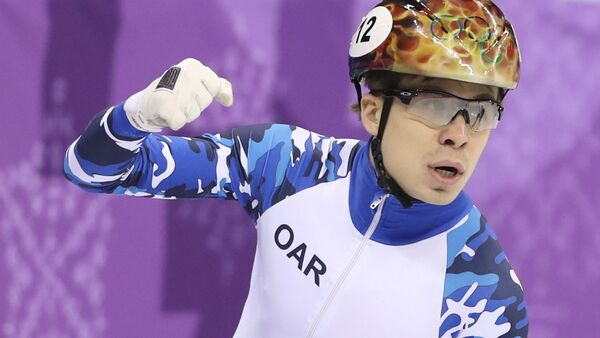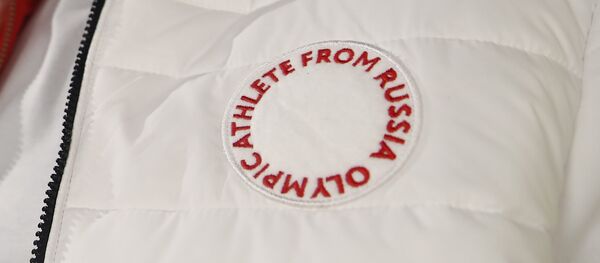"We have a surveillance program going on, looking at their actions and behavior and they will be reported back at the end of the Games to the [IOC[ Executive Board whether they feel that not just the letter but the spirit of the law has been breached," Adams told reporters commenting on the question whether the IOC would react to Russian short track speed skater Semion Elistratov's expressions.
Commenting on why Elistratov was allowed to participate in the Games although he had used meldonium two years ago, Richard Budgett, a member of the IOC panel responsible for invitations to Russian athletes, said that Elistratov used meldonium when it was not viewed as doping.
"Anyone who had been suspended for an anti-doping rule violation were not invited. As you know meldonium was a special issue… [it] was used in a widespread way throughout Eastern Europe and Russia… and was not prohibited," Budgett noted.
The day before, Elistratov who won a bronze medal at the 2018 Olympics said that he dedicated the medal to those Russian athletes who had been banned from the Games in a harsh and unfair way.
READ MORE: IOC: Athletes From Russia 'Clean,' Tested Rigorously as 'High Risk Group'
On December 5, the IOC suspended the Russian Olympic Committee over an alleged state-sponsored doping scheme in the country and decided that it would allow only clean Russian athletes to participate in the Winter Olympics that kicked off earlier on Friday in South Korea's Pyeongchang.
Prior to the Olympics, the Court of Arbitration for Sport (CAS) announced that it had ruled to uphold the appeals of 28 Russian athletes against the IOC Disciplinary Commission's decisions on their disqualification and lifetime ban from the Olympics over violations of anti-doping rules, and partially upheld another 11 appeals.


